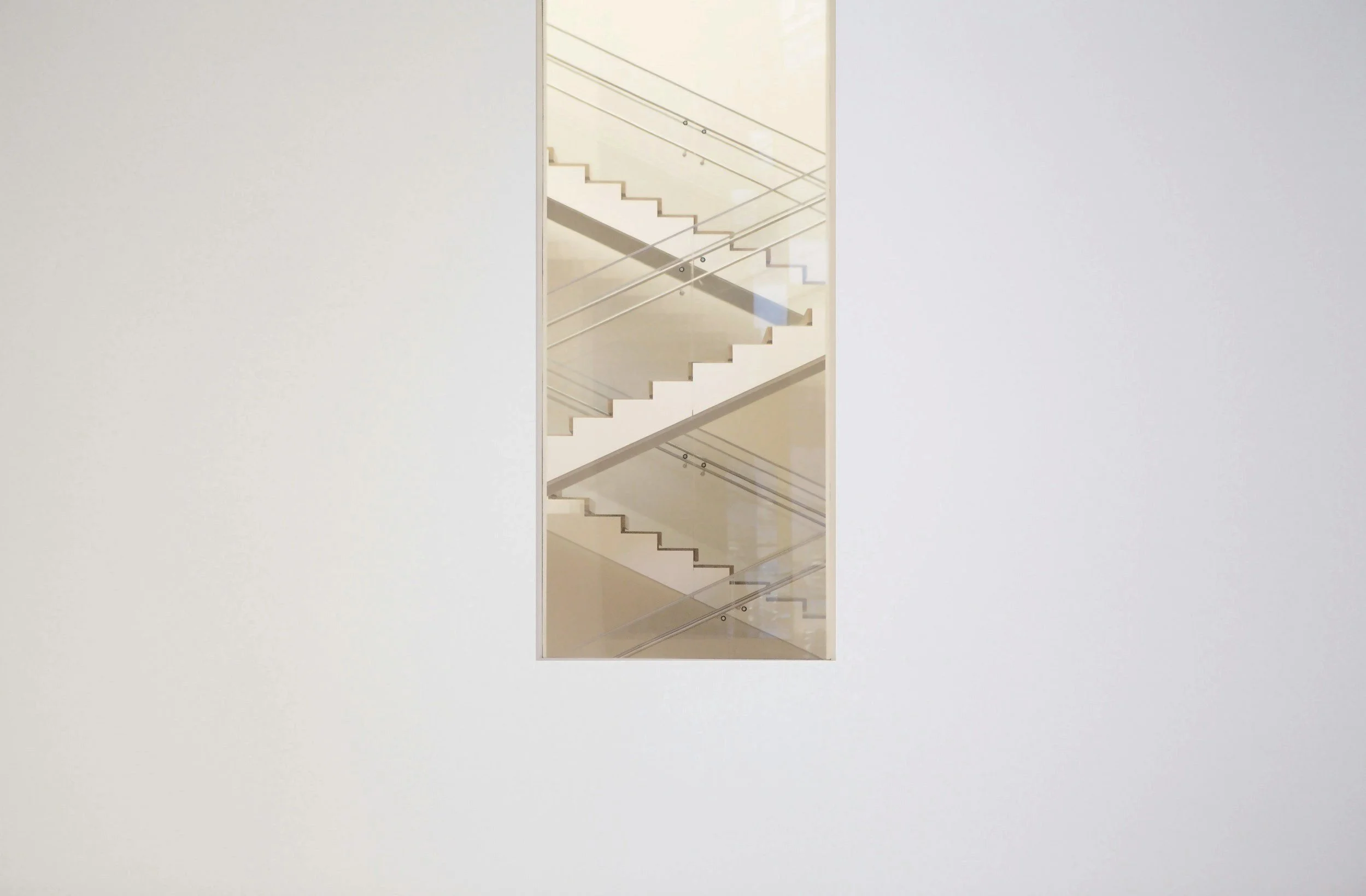
Therapy for ADHD
ADHD Therapists in Los Angeles, Highland Park, Koreatown, Pasadena, & Across CA/WA
What Our ADHD Clients Often Say
“I've been told that I'm smart—but I can't seem to stay organized.”
“I get things done at the last minute, but I'm constantly burned out.”
“I'm successful on the outside...but I feel deeply scattered inside.”
A deeper UnderStanding of ADHD
At Oak and Stone Therapy, our ADHD therapists in Los Angeles understand that Attention Deficit Hyperactivity Disorder (ADHD)—especially in high-achieving teens and adults—often goes unnoticed, misdiagnosed, or even misunderstood. It’s often oversimplified as hyperactivity, the inability to focus, or forgetfulness. However, it’s a complex neurodevelopmental condition that can impact every aspect of life, including relationships, self-esteem, and daily functioning. While symptoms include inattention, hyperactivity, impulsivity, and emotional regulation difficulties, ADHD can manifest differently for everyone, depending on factors such as age, environment, and other coexisting conditions.
ADHD often shows up in the following ways:
Persistent internal restlessness
Difficulty switching off a racing mind
Trouble prioritizing, even when everything feels urgent
Emotional overwhelm, shutdown, or shame after procrastinating
Frequent forgetfulness
Often losing track of thoughts or conversations
Difficulty initiating or completing tasks
Frequently misplacing things (e.g. phone, wallet, keys, jacket, computer) or losing time
Needing an impending consequence for motivation to do something
Struggles with transitions, relationships, and/or executive function— despite being “on top of it” professionally, academically, or whatever you can hyperfocus your mind on
The Cycle of success and burnout
If you are like many of our ADHD clients, you may experience living in a constant loop of procrastination, intense focus, and burnout. You may appear highly accomplished—driven, creative, or high-performing—but your productivity often comes in unpredictable bursts, followed by exhaustion or avoidance. This “all-or-nothing” pattern is common in ADHD. You might frequently delay tasks until the last minute, then enter a tunnel of hyperfocus to get everything done—often at the cost of sleep, emotional regulation, or self-care. Once the task is complete, you likely crash, only to repeat the cycle. Even when successful, you may often feel behind, disorganized, or like a fraud. The pressure to keep up—to always be productive—can lead to anxiety, shame, and eventual burnout. And because people only see the finished product, your internal struggle may often go unnoticed. At Oak & Stone Therapy, our ADHD therapists at the Highland Park , Pasadena office, Koreatown Mid City office, Seattle Office, and virtually in California and Washington, can help you recognize and break these unsustainable patterns—building systems that honor your unique brain while also cultivating rest, balance, and emotional sustainability.
Many of our ADHD clients have told us:
“If it’s not last minute, I can’t get it done.”
“It’s all or nothing. I’m either locked in or totally unproductive.”
“My mind never stops. It’s loud and I’m exhausted by my own thoughts.”
“I have trouble sleeping because my brain just keeps going.”
“It takes me 10x the energy to do what seems easy for everyone else.”
internalized shame and guilt
If you are like many of our clients with ADHD, the most painful part isn’t the symptoms themselves—it’s the shame that builds over time. You may have spent years blaming yourself for being “messy,” “lazy,” “inconsistent,” or “too much” as an overcompensating perfectionist. Even when you’re working hard, you might often feel like you’re failing at things that seem easy for everyone else—answering emails, remembering appointments, staying organized, or following through on boring tasks. This disconnect between your effort and outcome can create a deep sense of inadequacy. You might carry guilt for letting down partners, colleagues, or family members, even when you’re trying your best. The emotional weight of feeling unreliable or misunderstood can lead to isolation, anxiety, and burnout. At Oak & Stone Therapy, our ADHD therapists at the Pasadena office can help you name and unpack this internalized shame—not as a flaw in your character, but as a natural response to years of living in systems that weren’t built for how your brain works. Through therapy, we begin to develop a more compassionate relationship with yourself and start to build new patterns rooted in clarity, not criticism.
Many of our ADHD clients tell us:
“I feel so guilty for forgetting things—I know it’s not intentional, but it sucks letting the people I care about down.”
“Why can’t I just do basic things, like answer emails, respond to text messages, or fold my laundry?”
“I’ve always felt lazy, even when I’m working nonstop.”
confusIon
If you are like many of our ADHD clients who come to therapy, you may be feeling confused about whether you really have ADHD—especially because you’ve been successful, high-achieving, and outwardly “on top of things” for most of your lives. You may have built careers, completed advanced degrees, and often appear highly competent to others. But beneath that success, you may have experienced a lifelong struggle that never quite made sense: intense anxiety over deadlines, constant self-criticism, a deep fear of dropping the ball, and years of overcompensating for disorganization, distraction, or emotional overwhelm. Because ADHD is still widely misunderstood—and because so many people learn to mask their symptoms through perfectionism, ambition, or people-pleasing—you may not recognize the signs until much later in life. For some, it’s only after burnout, a career transition, or parenting a neurodivergent child that the patterns become clear. At Oak & Stone Therapy, we help you make sense of your stories with compassion, not judgment. Therapy becomes a space to unravel the confusion, reframe the past with insight and kindness, and discover sustainable ways of moving forward with less shame and more clarity.
Many of Our ADHD clients tell us:
“I thought I had anxiety or depression—but it was ADHD underneath it all the whole time!”
“I was always the ‘gifted’ kid growing up. No one would ever believe I had ADHD.”
“I never saw myself in the ADHD stereotype since I had really good focus, maybe sometimes too much focus.”
Masking and Compensating
If you are like many of our ADHD clients, you may have spent years masking your symptoms—hiding your struggles behind perfectionism, people-pleasing, overworking, or hyper-productivity. This masking often begins in childhood, especially for those of you who were labeled as “gifted” or “responsible,” and continues into adulthood in high-pressure careers, parenting, or academic environments. To compensate for internal disorganization, overwhelm, or executive dysfunction, you may have created elaborate systems, staying up late to “catch up,” or avoiding tasks altogether until a deadline forces action. On the outside, you may appear successful or “high functioning”—but inside, you might often feel like you’re just barely keeping it together. Over time, this chronic overcompensation leads to exhaustion, burnout, and a loss of authenticity. You may be coming to therapy not because you’re failing, but because the strategies that once helped you survive no longer feel sustainable. At Oak & Stone Therapy, our ADHD therapists help you unmask with safety and compassion—exploring what it means to live and work in alignment with your true neurodivergent needs, rather than against them.
Many of our ADHD clients tell us:
“I’m really good at appearing to be organized since I have spurts of it moments, but I’m actually constantly stressed.”
“If it’s not last minute, I can’t get it done.”
“I’ve built a life around avoiding my executive function struggles—and I got through it for many years, but now I’m exhausted and the current demands is too much.”
“People think I’m super productive, but I’m just in a constant cycle of panic and recovery.”
“I’m thriving on paper, but inside, I feel like I’m barely holding it together.”
“I get a lot of help with reminders from [my partner, colleagues, assistant, etc.].”
Relationship struggles
If you are like many of our clients with ADHD, you may often experience strain in your relationships—not due to a lack of care, but because your brains work differently. The core traits of ADHD—like inattention, impulsivity, and inconsistent executive functioning—can lead to cycles of misunderstanding and emotional disconnection. You might find yourself interrupting others, acting on impulse, forgetting dates, or misplacing things—behaviors often misread as careless. You might also struggle to manage daily responsibilities without the support of a partner, parent, or assistant, creating an imbalance in shared roles. Despite good intentions, you may feel like you’re “letting people down,” which leads to shame, burnout, and a deep sense of isolation. At Oak & Stone Therapy, our ADHD therapists help you, couples, and loved ones recognize these patterns with compassion, build healthier communication, and repair relational ruptures in sustainable, supportive ways.
Many of Our ADHD clients tell US:
“I keep disappointing people I care about, even when I’m trying so hard.”
“I interrupt people and then feel really bad about it.”
“I commit to things before thinking it through—then I burn out and end up not doing a good job or backing out.”
“I say things I don’t mean, and regret it later.”
“I can focus for 12 hours on something I love—but I can’t get myself to answer an email or respond to a text within a reasonable time.”
“I’m so sensitive to rejection—if feels like the end of the world when someone is setting a boundary.”
“I’ve lost friends over things I didn’t mean to do, like forgetting birthdays or zoning out during conversations.”
What our clients say after ADHD therapy
After working through ADHD therapy, many of our clients describe finally feeling understood—not just by others, but by themselves. They begin to make sense of lifelong patterns with new language and less judgment. Instead of viewing their struggles as personal failures, they start to see them as navigable differences in how their brains process the world. They often say things like, “I didn’t know life could feel this manageable,” or “I’m no longer drowning in shame—I know what works for me now.” Through therapy, our clients develop tools that help them stay regulated, communicate more clearly, and move through life with greater self-trust. It’s not about becoming a different person—it’s about unlearning what they were never meant to carry and creating systems that truly support who they are. At Oak & Stone Therapy, we’re honored to walk alongside that journey.
Many of our ADHD clients tell us:
“Finding out I had ADHD was like putting glasses on for the first time—everything suddenly makes sense.”
“I’m grieving how hard I was on myself, thinking that I was just incompetent and inconsistent.”
“Therapy has helped me stop managing my life like a crisis and start building something sustainable, even if it feels boring.”
“I finally understand how my brain works—and I’m not broken.”
“I’ve stopped blaming myself for things that were never about laziness.”
“I wish I had known this sooner—this explains so much of my past.”
faqs about ADHD therapy
-
We tailor therapy to fit your specific lived experience. Our approach to ADHD therapy as a therapist involves several key components:
Recognize the Symptoms
ADHD shows up in focus, emotions, nervous system regulation, relationships, and self-esteem. Ruling out other possible conditions and identifying your unique presentation is the first step to understanding what’s really going on before treatment planning.
Understand the Causes
ADHD is shaped by brain wiring, genetics, environment, and social factors. Many people don’t realize they have it until adulthood—especially if they’ve masked symptoms or overcompensated for years.
Assess the Impact
We explore how ADHD affects your daily life, relationships, mental health, and work. Understanding the full picture helps us tailor your care.
Develop a Treatment Plan
We co-create a plan that fits your goals and includes ADHD-informed therapy, executive function coaching support, and optional referrals for medication.
Map Out Your Patterns
We identify the cycles of overwhelm, procrastination, hyperfocus, and emotional shutdown so you can respond with more awareness and intention.
Provide Psychoeducation
You’ll learn how ADHD really works—including executive dysfunction, sensory sensitivity, and rejection sensitivity—so you can stop blaming yourself.
Introduce New Strategies That Work for Your Brain
We offer ADHD-friendly tools for time management, emotional regulation, communication, and realistic structure—without shame or rigid systems.
Implement Experiential & Somatic Exercises
We use mindfulness, Brainspotting, body-based, and experiential techniques to help regulate your nervous system and shift old self-beliefs.
Practice
You’ll practice applying new tools and insights in your real life until they become more natural, supportive, and sustainable.
-
1. Reach out to a therapist and/or psychiatrist to start your healing journey.
Therapist/Counselor: A mental health professional can provide strategies and support through therapy.
Psychiatrist: Medication might be necessary and should be managed by a psychiatrist.
2. Build a Support System
Talk to Trusted People: Open up to friends or family members who can offer emotional support.
Support Groups: Joining a ADHD support group can help you feel less isolated and provide a sense of community.
3. Lifestyle Changes
Exercise Regularly: Physical activity can boost endorphins and improve mood.
Balanced Diet: Nutrient-rich foods (especially a high protein diet) support ADHD and mental health, and reducing artificial dyes, refined sugar, ultra-processed foods
Adequate Sleep: Establish a regular sleep routine to ensure you're getting enough rest, reduce screen time
4. Mindfulness and Relaxation
Meditation: Helps manage stress and improve emotional well-being.
Breathing Exercises: Simple techniques to calm the mind and body.
5. Healthy Coping Mechanisms
Creative Outlets: Engage in activities like drawing, writing, or playing music.
Hobbies: Pursue interests that bring you joy and provide a sense of accomplishment.
6. Set Realistic Goals
Small Achievements: Break tasks into smaller, manageable steps to avoid feeling overwhelmed.
Celebrate Success: Acknowledge and reward yourself for each accomplishment.
7. Limit Stress
Identify Stressors: Recognize and try to reduce sources of stress in your life.
Time Management: Plan and prioritize tasks to avoid feeling overwhelmed.
8. Avoid Substance Use
Limit Alcohol: Alcohol can worsen depression symptoms.
Avoid Drugs: Drugs can have a negative impact on your mental health.
9. Positive Thinking
Challenge Negative Thoughts: Replace negative thoughts with positive, realistic ones.
Gratitude Practice: Focus on positive aspects of your life and express gratitude regularly.
10. Consider Alternative Treatments
Acupuncture: Some find relief through holistic treatments like acupuncture.
Supplements: Consult with a healthcare provider about potential supplements, such as Omega-3 fatty acids, zinc, magnesium glycinate, iron, L-theanine, etc.)
Remember, everyone's journey with anxiety is unique, and finding the right combination of strategies can take time. It’s important to be patient and compassionate with yourself throughout the process.








